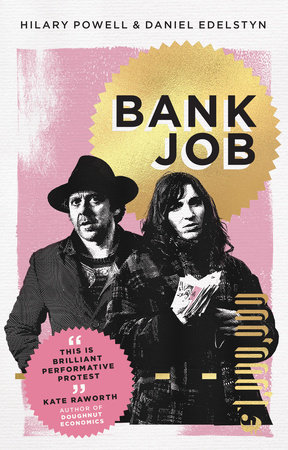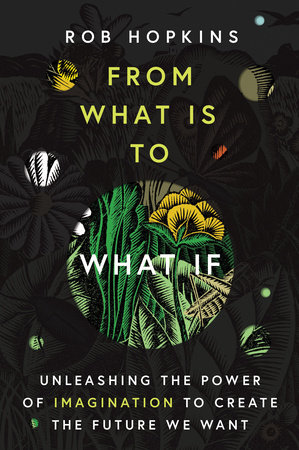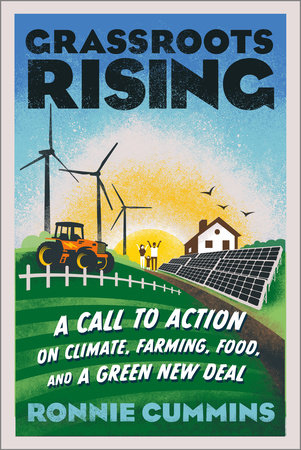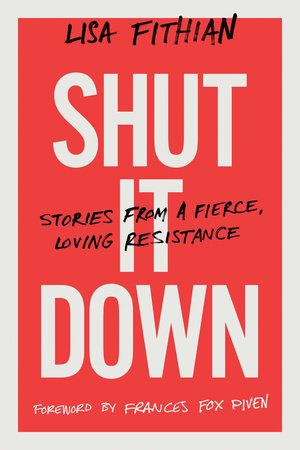Big Bang 2: The Debtonator

(Photo: The ‘debt in transit’ van, filled with paper notes representing £1.2 million of toxic debt, mid-explosion: Big Bang 2. Credit: Graeme Truby.)
Art hacks life when two filmmakers launch a project to cancel more than £1m of high-interest debt from their local community.
Bank Job is a white-knuckle ride into the dark heart of our financial system, in which filmmaker and artist duo Hilary Powell and Dan Edelstyn risk their sanity to buy up and abolish debt by printing their own money in a disused bank in Walthamstow, London. This is the inspiring story of how they listen and act upon the widespread desire to change the system to meet the needs of many and not just the few. And for those among us brave enough, they show how we can do this too in our own communities one bank job at a time.
The following excerpt is from Bank Job by Hilary Powell and Daniel Edelstyn. It has been adapted for the web.

Portrait of Hilary and Dan ‘Bank Job’ style outside the back of Bank. Photograph by Linden Nieto and Daniel Edelstyn.
Another Big Bang. A not-so ‘quiet catastrophe of mind and matter’. Why? The outcome of our Rebel Bank was the purchase and cancellation of £1.2 million of local predatory debt. Why was the sending out of letters not enough? Why explode a ‘debt in transit’ van on a site with a vista of the financial district of Canary Wharf as backdrop? Chaos theory combines with economic theory as the abstract becomes concrete and visceral and the invisible becomes not only visible but spectacular. Can our small action have reverberating impacts? Exploding the public conversation around an unjust economic system through an act of creative destruction? We go behind the scenes of the organisation of this anarchic art action – a route that exposes censorship, the Kafkaesque red tape behind our democracy and a logic that sees more danger in a message than a literal explosion. Perhaps there is some truth in the meme ‘Beware of Artists’.
We had distributed half the dosh, turning up at a school and food bank with our alternative red budget briefcase/ box. Now to buy and cancel £1.2 million of local payday and catalogue debt. This was an arduous, imperfect process with many wrong turns and blind alleys. Working with a member of the debt industry with his own FCA (Financial Conduct Authority) license and a need for some kind of redemption, we eventually managed to isolate and legally purchase a bundle of debt by postcode. As Strike Debt had found out, the reason we were able to buy this much debt for a fraction of its original value was because we were making a hack into what is known as the secondary debt market.
Debt, like sugar or soap, is traded as a commodity.
Specialist companies operating in this industry may have bought your debt for a tiny amount of its original value if you have failed to make recent payments to the original lender, but the letters will still come through to you saying you owe the original amount plus interest.
Within the local postcodes of E17, E10, E11 and E4, we bought up a package containing the debt of 411 people averaging £2,960 each, with a total value of in excess of £1.2 million. This was all very quiet, involving spreadsheets, General Data Protection Regulation, phone calls and meetings. Due to the delinquency (old, lost, deemed ‘unruly’) of the debt we were not overrun with individual stories that could counter some of the shame and stigma surrounding debt, but we’d also been very wary of highlighting the ‘debtor’ in this way and consolidating the narratives of the debtor as ‘other’, as sinner to be redeemed or saved.
At the core of the project was a challenge to the hypocrisy that turns a blind eye to the mass bailouts of the banks, to a society in which those at the top get to negotiate their debts while others are faced with bankruptcy, bailiffs and bias. We were writing off debt, raising awareness of the existence of the secondary debt market, but if the whole point of the project was to pierce the public conversation around unjust debt and question the legitimacy of a wider economic system that wraps debt around basic provision, we really needed to make more noise.
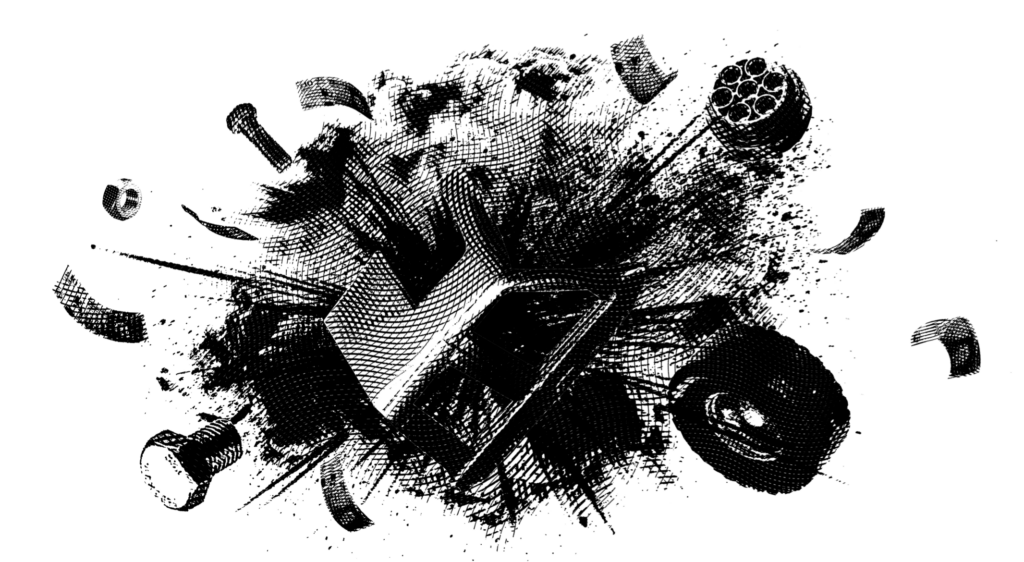
Bonds are traditionally a way for one entity to raise money by borrowing from another. They are debt based and deliver return for investors. In times of war, governments issued war bonds, calling on citizens and investors to loan them money in order to fund whatever endeavour they were involved with at the time. Government debt is seen as the safest place for investors to put their money, particularly in volatile times with a fragile financial system. At this time of global uncertainty, bonds are so popular that some countries are actually charging investors for lending them their money. We saw the bonds as our own form of ‘war bond’ – a cry to join us in exploding the conversation around debt and our current economic system. Our bonds were debt based too, but do not yield financial return in the same way as traditional bonds. The return on investment was listed as:
- The bond itself. An artwork printed in the bank using traditional print techniques of letterpress, screen print, foil block and company seal with a finishing touch
of gilt (another word for bonds is gilts or gilt-edged securities). - An invitation to the explosion (to be confirmed).
- A fragment of the explosion. After the explosion we will collect the exploded parts, exhibit them in suspended animation and then melt them down to create commemorative coins – turning debt back into currency and providing a return more valuable than the initial investment.
- The chance to make history.
You Also Might Like…
Bank Job is a white-knuckle ride into the dark heart of the global financial system. Artist and filmmaker duo Hilary Powell and Dan Edelstyn bring a community together to buy up and abolish crippling debt, by printing their own money in a disused bank in East London. Behind the opaque language of loans and the defunct diagrams of debt, they discover a system flawed by design and ripe for hacking. Part daring tale, part personal memoir and part financial education, Bank Job shares reflections of the authors’ own experiences of debt and examines the wider impact of a society that has entangled the concept of money with personal identity for too long. And for those brave enough among us, you’ll see how to change the system to meet the needs of many and not just the few, one bank job at a time.
Recent Articles
Using herbal medicine to heal the body is an ancient practice. It has since become a worldwide industry. Today, modern-day doctor’s visits and industrial medicine have displaced common knowledge of herbal medicine. Some still remember the ancient practice. In her book Following the Herbal Harvest, Ann Armbrecht interviews one such person, Phyllis Light, a fourth-generation…
Read MoreAddressing the pressing issues affecting everyday Americans is essential—and one of our nation’s most profound challenges is the devastating impact of mass layoffs. Layoffs upend people’s lives, cause enormous stress, and lead to debilitating personal debt. The societal harm caused by mass layoffs has been known for decades. Yet, we do little to stop them.…
Read MoreIn a personal investigation into ethical and traceable leather, fashion designer Alice Robinson begins a ground-breaking journey into the origin story of leather and its connection to food and farming. Keep reading to learn more about her process of cutting & shaping leather to create handbags, shoes, clothing, and more! The following is an excerpt from…
Read MoreWe’ve all heard of the phrases “time flies” and “time heals all wounds,” but what really is time, and how does it impact our lives? The concept of time may be even more powerful than we think, especially when it comes to the money we save and spend. The following is an excerpt from The…
Read MoreVandana Shiva has been described in many ways: the “Gandhi of Grain,” “a rock star” in the battle against GMOs, and “the most powerful voice” for people of the developing world. For over four decades she been at the forefront of seed saving, seed sovereignty, and connecting the dots between the destruction of nature, the polarization…
Read More

